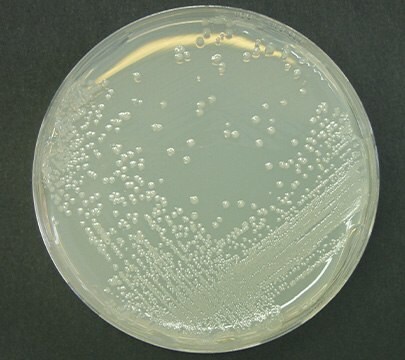Alicyclobacillus Spoilage in Juices: Testing Methods
Alicyclobacillus is a genus of acidophilic, strictly aerobic, rod-shaped, Gram-variable, and spore-forming bacteria. Although most species are aerobic, these microorganisms still can grow in aseptically packaged and canned acidic foods. Due to their characteristic slow and late growth, alicyclobacilli pose a challenge for juice manufacturers. The growing demand for natural organic drinks has made the quality control for such acidophilic bacteria even more crucial.
Microbial Spoilage of Fruit Juices Caused by Alicyclobacillus Bacteria
Spoilage microorganisms can cause increased turbidity, color changes and unpleasant sensory properties in juices (disinfectant-like off-flavors in products caused by formation of guaiacol). Guaiacol is produced by degradation of phenolic acids (important antioxidants like caffeic, p-coumaric, ferulic, sinapic acids) in fruits and leaves. Off-flavors and odors caused by spoilage typically occur at levels of 104 to 105 cfu Alicyclobacillus/mL. Alicyclobacillus acidoterrestris is recorded as the most important spoilage species within the genus,1 but in total 19 Alicyclobacillus species have been isolated from spoiled product, including A. acidocaldarius, A. pomorum, and A. herbarius2. Soil is the natural habitat of alicyclobacilli, and probably also often the source of beverage contamination of the raw materials (syrups, concentrates, fruit purees, etc.) used for beverage production3.
About 30% of fruits entering a processing plant are contaminated with Alicyclobacillus. The endospores can typically be found in 15 to 75% of juice concentrates, but not necessarily spoilage causing types. These microbes do not grow in juice concentrates but remain viable for a long time—their spores can germinate in the diluted (finished) product. Alicyclobacillus spores can also survive a typical pasteurization process. Detection of these organisms, which is traditionally done by incubation on culture medium, takes five to twelve days, or even longer. Most of these acidophilic and thermophilic species grow at a pH range of 2 to 6 and at a temperature range of 20 to 70 °C and are heat resistant (D95 2 to 15 min, depending on the strain and the fruit juice/concentrate)1,4.

Division: Firmicutes
Class: Bacilli
Order: Bacillales
Family: Alicyclobacillaceae
Genus: Alicyclobacillus
Alicyclobacillus Species

Alicyclobacillus acidoterrestris DSM 2498 on BAT agar.
The revised IFU Method No 12 (2019)6 for Alicyclobacillus spp. testing in juice-containing drinks recommends using 3 different methods according to ISO procedures, as well as BAT broth and BAT agar. The new formulation is less toxic as cobalt and boric acid are not included anymore. All three methods (A, B and C) involve heat shock treatment for 10 min at 80 °C to induce germination of spores. The procedure A is a direct enumeration by pour plate technique and is used for samples which cannot be filtrated because of particles or other matrix properties. Procedure B is a quantitative method used for the direct enumeration by filtration technique. The procedure C is for the detection of spore-forming thermo-acidophilic bacteria (Alicyclobacillus spp.) by enrichment in BAT broth. For confirmation the colonies on BAT agar are transferred onto fresh BAT agar and an agar with neutral pH, for example PCA (plate count agar) for growth comparison. Alicyclobacillus spp. should not grow on PCA due to its neutral pH. Optionally the guaiacol test can also be performed.
Alicyclobacillus Testing Methods
- Culture-based methods: BAT broth for enrichment or dilution of samples and BAT agar for detection, enumeration, and confirmation of Alicyclobacillus spp. according IFU Method No. 12:2019.
- Rapid molecular biology method without PCR: Alicyclobacillus organisms can be detected and identified using in-situ hybridization. The HybriScan® system provides the accuracy of a genetic test but without the need for PCR. While detecting living cells only, the system is not sensitive to sample matrix and is low in costs, which makes it interesting for the beverage industry. With HybriScan® I Alicyclobacillus the detection, identification and confirmation are done in a single step, so no further confirmation step is needed.
- Quality Control Strains: Performance testing of culture media involves tests for productivity, selectivity, and specificity. The IFU Method No. 12 recommends using Alicyclobacillus acidoterrestris (DSM 2498, DSM 3922 or equivalent strain) for productivity testing of BAT agar and broth, and for specificity testing of the plate count agar. Bacillus subtilis subsp. spizizenii (WDCM 00003) is used for selectivity testing.
Vitroids™ and Lenticule® discs are innovative, ready-to-use and convenient formats to make microorganisms available for performance testing of culture media. As certified reference materials (CRMs), they are quantitatively well-characterized standards. It is possible to use them directly just by picking and placing them on an agar plate or in a broth. The discs rehydrate automatically in the broth or build a droplet on the plate which can then be distributed with a loop. They can also be used to spike samples.
Alicyclobacillus acidoterrestris CECT 7094 Vitroids™
(Equivalent to DSM 3922, ATCC 49025, BRC 17660, CICC 10372, CIP 106132, KCTC 345, LMG 11152, NCIMB 13137)
Bacillus spizizenii (formerly Bacillus subtilis subsp. Spizizenii)
WDCM 00003/CECT 356 Vitroids™ (equivalent to ATCC 6633, DSM 347, NCTC 10400)
References
続きを確認するには、ログインするか、新規登録が必要です。
アカウントをお持ちではありませんか?